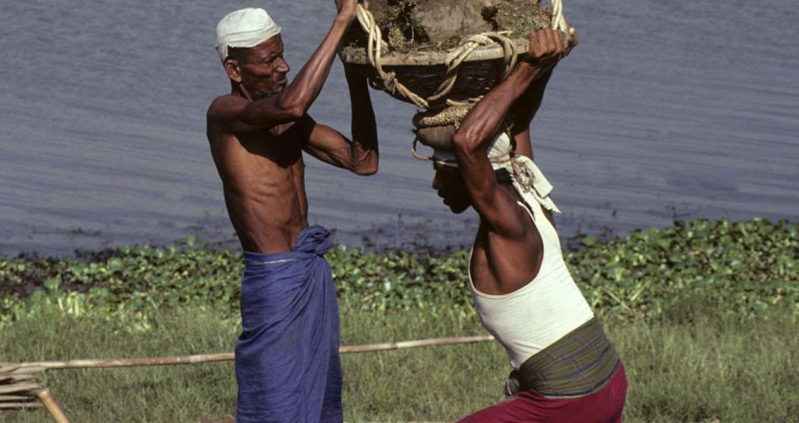
Today (Oct.17) the United Nations (UN) marks International Day for the Eradication of Poverty with a theme, “Ending Social and Institutional Maltreatment Acting together for just, peaceful and inclusive societies.” Evangelical leaders are joining the call to consider the plight of the poor and vulnerable.
The day gives a moment to reflect on the experiences of people in poverty, according to a UN statement, and think of practical applications to implement sustainable development goals to “promote just, peaceful and inclusive societies.”
“Poverty is a global plague, affecting hundreds of millions of people around the world,” says UN Secretary-General António Guterres. “But poverty is not inevitable. It is the direct result of the choices that societies and governments make—or fail to make.”
According to the UN statement, impoverished people face negative attitudes. Examples include being discriminated against, “judged by appearance, accent, address - or lack of it, blamed for their situation, and treated with disrespect."
“Social maltreatment creates a setting for institutional maltreatment, with a combination of negative attitudes, like mistrust and disrespect, as well as controlling discriminatory policies and practices, denying people of their fundamental human rights, for example, access to healthcare, education, housing, and the right to legal identity,” reads the UN statement.
This social and institutional maltreatment partner-up to deepen “this double-edged violence” and subsequent injustice.
Despite this special day being observed annually since October 1987, poverty is still rife. The UN recorded 700 million people existing on less than $2.15 USD per day in 2023.
Some 600 million are in “extreme” poverty and that includes one out of every six children.
At the same time, more than half (53%) of the world’s population, equating to four billion, have no form of social protection such as benefits.
Ending poverty is on the radar of the UN under its 17 “Sustainable Development Goals” (SDGs) for the 2030 Agenda for Sustainable Development.
In particular, referencing target 1.A, to: “ensure significant mobilization of resources from a variety of sources, including through enhanced development cooperation, in order to provide adequate and predictable means for developing countries, in particular least developed countries, to implement programmes and policies to end poverty in all its dimensions.”
For this year’s theme, the UN's focus on institutional maltreatment also uncovers a “hidden dimension” of poverty, according to the UN statement.
Guterres concurs the theme is a reminder that people “mired in poverty” struggle to get the right support because of systemic barriers and societal discrimination.
The reality of ending global poverty, and achieving the UN’s Sustainable Development Goals thus requires decision-making governments to put people first, he adds.
“It demands that we prioritize investments in decent work, learning opportunities and social protection that offer ladders out of poverty," says Guterres.
“And it calls on us to fully implement the new Pact for the Future [adopted in September 2024] by supporting an SDG Stimulus and reforming the global financial architecture to help developing countries invest in their people.”
Humane, dignified societies are only possible if poverty is eradicated, adds Guterres, so that no one is left behind.
“On this important day, let’s re-commit to making poverty history,” he adds.
Dr. Krish Kandiah, founder of Home for Good, a U.K. charity providing homes for children needing fostering and adoption, and now director of the Sanctuary Foundation supporting refugees, thought of John 12:7, when reflecting upon the importance of today: “Jesus said, 'The poor you will always have with you.'”
Kandiah also felt that today marked a fresh opportunity for churches to be reinvigorated in the gospel call to help those in poverty.
“I believe the church’s mission is to stand against poverty and embrace the poor with open arms,” Kandiah told Christian Daily International.
“While we may never fully eradicate poverty until Christ returns, our calling is to faithfully use the resources we have to offer a glimpse of God’s coming kingdom—a place of justice, compassion, and abundance for all.”
In a statement, Schweizerische Evangelische Allianz (SEA), the body uniting evangelicals in Switzerland, warned of a danger in putting sustainable development and international solidarity in the face of poverty issues “on the back burner” because the world had become seemingly preoccupied with armed conflicts.
“However, Christians in particular are called upon to stand up for justice in a time of uncertainty and growing social inequality,” the evangelical body added.
The SEA acknowledged security concerns become a priority in “uncertain times” but highlighted the problem of budgets being set aside for upscaling military quotas rather than for “international cooperation” and referred to the Swiss Parliament considering increasing a military budget as a case in point.
“This would affect the poorest countries globally and is deeply lacking in solidarity," stated the SEA in regards to the Swiss Parliament's deliberation. "As security and development are closely linked, the army and development cooperation should not be played off against each other.”
The SEA urges people to heed Christ’s active call to love neighbors and avoid self-centered thinking.
“Christians in particular are called upon to stand up for the weakest, even under difficult conditions, and to actively practice charity.”





